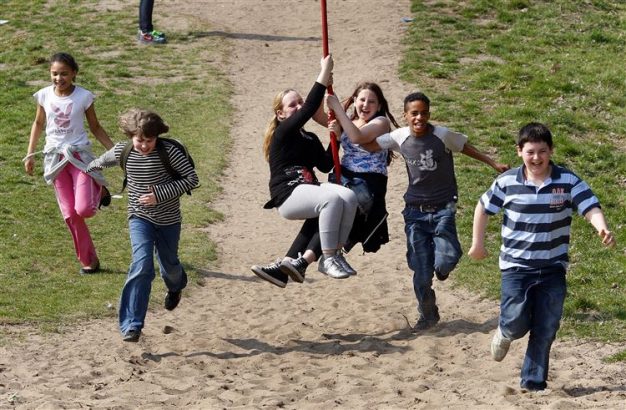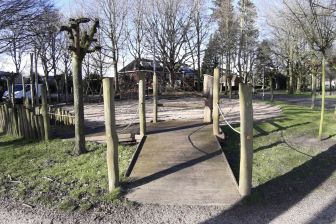
Playgrounds fast disappearing over noise complaint
Children are spending less time playing outside, despite the fact that all the experts agree that playing outdoors is of value for children’s development. Urban planners are challenged with a task to create cities which meet the needs of the youngest of us all and the ageing population.
“Multigenerational planning means that planners need to focus their efforts on the design and provision of services for all populations. Older people, young adults, and families share many important priorities and issues within a community — physically, socially, and culturally. For example, a safe, well-maintained sidewalk benefits seniors desiring exercise or who no longer drive. At the same time it helps a young mother pushing a stroller or a child learning to ride a bicycle.”
[Source: https://www.planning.org/research/family/briefingpapers/multigenerational.htm]
However, many cities fail in ensuring in achieving this. Elske Osst-Mulder from a Dutch consultancy, who presented at the Child in the City Congress in Stuttgart yesterday, drew attention to the lack of attention and thought that is being given to young people between the ages of 12 and 18 regarding public space usage.
“Older citizens very often complain about nuisance caused by youngsters. In fact it is high on the list of complaints. As a result, the tolerance towards the young group is declining and the majority of the public believes that there should be play space but preferably not directly in their neighbourhood as this could lead to disturbance,” said Osst-Mulder.
Osst-Mulder explained, “This situation has forced many Dutch authorities to scrap plans for creating more play areas, which are driving the young groups out of our neighbourhoods. Therefore, it is necessary to ensure that spaces are created to meet the needs of the young and finding innovative solutions how to ultimately lower the amount of complaints by the elderly.”
Play areas created based on activity type
To ensure that the young groups can enjoy the community life, the consultancy group initiated a concept and came up with four categories according the type of activities the children are interested in. This should provide them with appropriate play areas and equipment, avoiding possible disruption.
“This should provide them with the appropriate play areas of their interest, avoiding possible disruptions”, commented Osst-Mulder.
Depending on the number of youngsters and their group characteristics (social, sports, wealth, school etc.), the four categories specify venues where the groups can meet and play:
Category 0: Kiss and Greet
Category I: What’s Up
Category II: Stay Around
Category III: No Problem
All categories have their own rules and equipment. Kiss and Greet is for those who simply meet on every street corner and space is needed to allow for this type of encounter. The equipment would be scaled up from What’s up to No Problem. The No Problem place is needed to accommodate larger groups of youngsters that have caused trouble in the neighbourhood.
Osst-Mulder concluded: “What’s Up places are needed more than No Problem places.”
About OBB Ingenieursbureau Consultancy
OBB Consultancy is a company in The Netherlands in Deventer. They work with customers from across the Netherlands including small villages such as Diepenheim and the main capital city Amsterdam. Their main focus is to provide them with the most practical plans for play and the creating of healthy space for all ages. For more information, visit http://www.obb-ingenieurs.nl/




